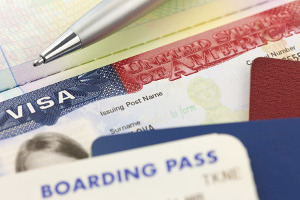The H1B visa is a type of employment-based and non-immigrant visa awarded to temporary workers. For a foreign non-immigrant individual to get the H1B visa, an employer needs to offer a job in the US first. The employer is usually the one to apply for the visa petition through the US Immigration Department. This visa serves as a work permit that allows you to work in the US for a particular employer.
What Is H1B RFE?
The Request for Evidence (RFE) is a notice that the adjudication officer of the United States Citizenship and Immigration Services (USCIS) uses to request additional information from pending applicants. Receiving such notice can be nerve-wracking for most people. But why does this happen? Generally, the application for the H1B falls into several categories: (1) the record is complete and the petition approvable, (2) is not approvable as the evidence points out ineligibility, and (3) evidence raises many questions and does not establish eligibility.
When an applicant has a document or pieces of it that are missing or if there are concerns about the pieces of evidence that they have submitted, the USCIS officer usually issues an RFE so that the eligibility of the applicant can be made.
Types of RFEs
It seems that receiving an RFE has become a norm these days. Back in 2008, it was considered a taboo and the USCIS rarely asked for more information to provide evidence of an applicant’s eligibility. In fact, the possibility of getting an RFE is 1 out of 3 cases so don’t think of it as something that is bad. As of the previous years, there are different types of RFEs that the USCIS ask from the applicants. Thus, it is crucial to understand what they are so that you will be able to know which evidence you need to prepare.
-
- Employee-employer relationship: One of the most common requests that USCIS ask in the RFE is for applicants to provide an employee-employer relationship. This can be done by presenting documents like health insurance paid time off, 401k, and other benefits. A contract may also be submitted to prove such relationship exists.
-
- Education evaluation: This type of RFE is issued for employees that have completed their degrees outside the US. The evaluation is often conducted by an independent company that looks into the overseas education as well as provides the USCIS a report of the equivalent degree in US universities..
-
- Proof of specialty occupation: In most cases, the USCIS officers want proof that the H1B applicant has both experience and education related to a particular job that is being offered by the employer. For instance, if the employee applicant is hired to be an IT engineer, his or her education should be related to working in the IT industry..
-
- Contract and client letter: This is perhaps one of the most common and useful evidence required for the H1B RFE..
-
- Payroll information from the employer: RFE can also be issued to companies instead of individuals. In most cases, the USCIS officer requires companies to send payroll information. This is especially true for companies that have not filed for H1B. USCIS can also question employers on their tax returns to make sure that it has a good standing with the IRS..
- Mismatch of name: An RFE is also issued to applicants whose names are mismatched with their other documents. This is very common among for employees who have very long names and have to be shortened in their passport. This can be addressed by sending a copy of the birth certificate as well as other documents that prove the right name of the applicant.
For now, these are some of the common RFEs that the USCIS requires applicants to submit in case they need to prove their eligibility.
What to Do If You Get One?
When you receive an RFE, what should you do? First, read the notice and determine the kinds of evidence as well as documents that are needed by the USCIS officer. It is important to take note that you need to be able to file a response to the USCIS between 30 and 90 days or whatever was indicated by the officer in the letter. Although late responses are allowed, ignoring it will make it more unfavorable for you to have your petition approved.
Not all RFEs are the same. While some require simple evidence, others are more complicated. If you get a complex RFE, do not try to do everything by yourself as you might find it too difficult to be able to process all of the documents and pieces of evidence required. It will be helpful if you seek help from a reliable immigration attorney to help you address the issue of the RFE and be one step closer to that elusive H1B visa.
Beeraj Patel, Esq.
Latest posts by Beeraj Patel, Esq. (see all)
- Criminal History Implications for an Adjustment of Status - July 7, 2025
- Impact of Life Changes on Green Card Applications - June 16, 2025
- Common K1 Visa Criminal Background Issues - June 2, 2025
